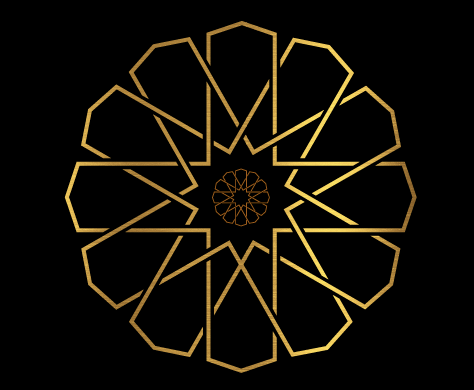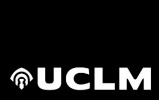Topological data analysis for applications in biomedicine

Organizers: Salvador Chulián García & Bernadette Jana Stolz-Pretzer.
10:40 – 11:00 – Modelling periodic biological processes as persistent cohomology classes / Presenting author: Kelly Maggs.
11:00 – 11:20 – Capturing spatial patterns with topological methods / Presenting author: Ondrej Draganov.
11:20 – 11:40 – Specific TDA pipelines for understanding spatial biology of multiplex data / Presenting author: A. Natarajan, M. J. Jiménez.
11:40 – 12:00 – Relational persistent homology for multispecies data with application to the tumor microenvironment / Presenting author: Jagdeep Dhesi.
Mathematical models for pest dynamics and control

Organizers: Sara Pasquali & Bedr’Eddine Ainseba
10:40 – 11:00 – Controlling burrowing nematodes in banana roots based on an epidemiological model with variable infestation density / Presenting author: Suzanne Touzeau.
11:00 – 11:20 – Physiological-based models and field measurements: a good binomial to improve models’ predictivity / Presenting author: Luca Rossini.
11:20 – 11:40 – Mathematical modelling of pest resistance to insecticides and global dynamics / Presenting author: Khadidja Aicha Kada.
11:40 – 12:00 – Climate-sensitive dynamically-structured population modelling for the castor bean tick, lxodes ricinus / Presenting author: Iman Mehrabinezhad.
Recent developments in biofilm modelling

Organizers: Maria Rosaria Mattei & Luigi Frunzo
10:40 – 11:00 – Immersed boundary models for biofilm spread and response to antibiotics / Presenting author: Ana Carpio.
11:00 – 11:20 – Estimating biofilm viscoelastic properties using a Bayesian framework / Presenting author: Nick Cogan.
11:20 – 11:40 – Biofilm accumulation and mass transport in porous media modeled by a PDE-ODE coupled system derived from a WannerGujer like compartment model of biofilm reactors / Presenting author: Hermann Eberl.
11:40 – 12:00 – Multiscale modeling of microbial community metabolism / Presenting author: Isaac Klapper.
Mathematical insights into telomere length dynamics

Organizers: Marie Doumic & Denis Villemonais
10:40 – 11:00 – Stochastic branching model for the telomeres dynamics including telomerase / Presenting author: Coralie FRITSCH.
11:00 – 11:20 – TBA / Presenting author: Marek KIMMEL.
11:20 – 11:40 – An inverse problem in cell gynamics: estimating the initial distribution of telomere length from the measurements of senescence times / Presenting author: Jules OLAYÉ.
11:40 – 12:00 – Individual cell fate and population dynamics revealed by a mathematical model of replicative senescence / Presenting author: Anaïs RAT.
Multiscale mathematical models in physiological processes and Cancer: from sub-cellular mechanisms to phenotype switching and metastasis (I)

Organizers: Niklas Kolbe & Zuzanna Szymanska.
10:40 – 11:00 – The influence of the geometry and domain size for a reaction-diffusion system with cross-diffusion / Presenting author: Gülsemay Yiğit.
11:00 – 11:20 – Computational investigation of heterogeneous cell phenotypes in the tumour microenvironment / Presenting author: Raluca Eftimie.
11:20 – 11:40 – Cell-state transitions and frequency-dependent interactions among subpopulations together explain the dynamics of spontaneous epithelial-mesenchymal heterogeneity in breast cancer / Presenting author: Paras Jain.
11:40 – 12:00 – Modeling heterogeneous gene expression responses to TGFβ stimulation / Presenting author: Karen Amaral Oliveira
Modelling heterogeneity, adaptation and evolution in cancer

Organizers: LEGRAND Carine & BONNET Céline
10:40 – 11:00 – The statistical physics of gene expression and mRNA expression heterogeneity / Presenting author: James Holehouse.
11:00 – 11:20 – Site frequency spectrum of a rescued population under rare resistant mutations / Presenting author: BONNET Céline.
11:20 – 11:40 – Deterministic modelling of cancer evolutionary dynamics: A phenotype-structured PDE approach / Presenting author: VILLA Chiara.
11:40 – 12:00 – Time-resolved, integrated analysis of clonally evolving genomes / Presenting author: LEGRAND Carine.
Recent advances in modelling cancer invasion

Organizers: Chiara Villa & Alexandre Poulain
10:40 – 11:00 – Proliferation-immuno-evasion trade off: A continuous model for tumor-immune dynamics and therapeutic strategies / Presenting author: Giulia Chiari
11:00 – 11:20 – Multiscale modelling of glioma invasion under the influence of the microenvironment / Presenting author: Martina Conte
11:20 – 11:40 – Travelling waves in heterogeneous cell populations/ Presenting author: Rebecca Crossley
11:40 – 12:00 – Hybrid modelling for cancer invasion and metastasis / Presenting author: Dimitrios Katsaounis
Mathematical models of cancer immunotherapy (I)

Organizers: Juan Belmonte Beitia & Álvaro Martínez Rubio
10:40 – 11:00 – Computational modelling of CAR-T therapy: from pharmacokinetic description to patient-level predictions / Presenting author: Adrià Murias-Closas.
11:00 – 11:20 – Individual patient dynamics of CAR-T cell therapy in lymphoma: Model selection and response prediction / Presenting author: Álvaro Martínez-Rubio.
11:20 – 11:40 – T-cell-cancer cel conjugate dynamics impact time to equilibrium or cancer extinction / Presenting author: Qianci Yang.
11:40 – 12:00 – Modelling tumour escape mechanisms in CAR-T cell treatment of leukemias / Presenting author: Alexis Farman.
Modelling collective cell migration across scales: from individual-based to continuum models

Organizers: Juan Jiménez – Sánchez & Tommaso Lorenzi.
10:40 – 11:00 – Macroscopic limits of kinetic equations for interacting multi-species systems / Presenting author: Gissell Estrada-Rodríguez.
11:00 – 11:20 -Modelling collective migration of phenotypically heterogeneous cell populations: a multiscale kinetic approach/ Presenting author: Nadia Loy.
11:20 – 11:40 – Evolution of phenotypic plasticity leads to tumour heterogeneity with implications for therapy / Presenting author: Simon Syga.
11:40 – 12:00 – Linking discrete and continuous models of cell birth and migration / Presenting author: Duncan Martinson.
Stéphanou.
Quantitative approaches to modelling and analysing cancer-immune interactions (I)

Organizers: Eszter Lakatos & Barbara Bravi
10:40 – 11:00 – A hybrid discrete-continuum modelling approach to explore the impact of T-Cell infiltration on anti-tumour immune response / Presenting author: Emma Leschiera
11:00 – 11:20 – Predicting T-cell receptor – peptide-MHC interactions: How can we bridge the two sides of the equations? / Presenting author: David Gfeller.
11:20 – 11:40 – Individual-based modelling of the interaction between cancer and T cells in vitro / Presenting author: Tomás Alarcón
11:40 – 12:00 – Immune evasion impacts the landscape of driver genes during cancer evolution / Presenting author: Luis Zapata Ortiz.



